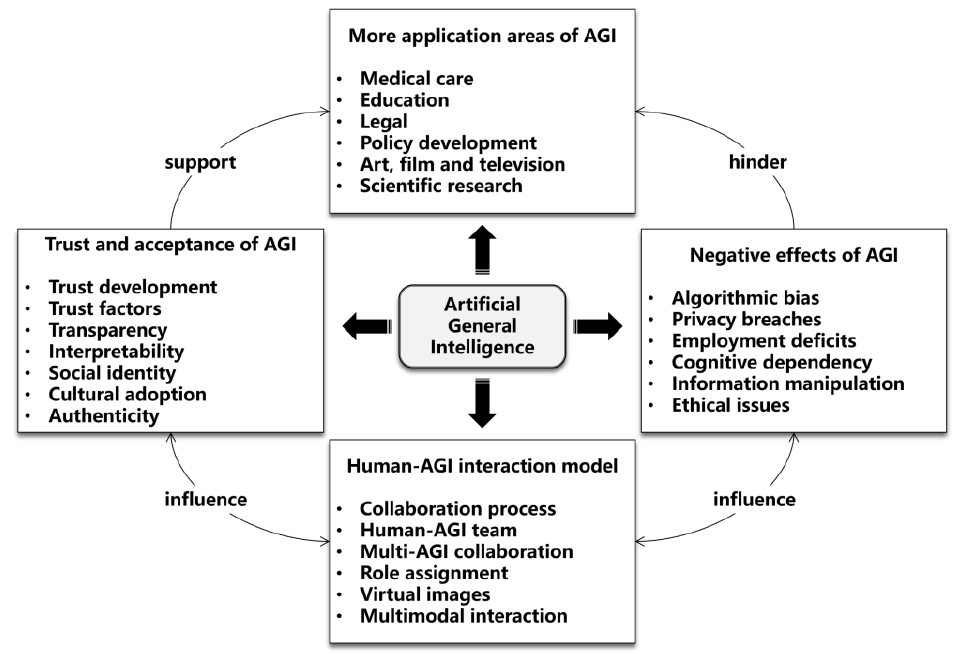Artificial General Intelligence (AGI) can understand, learn, and apply knowledge across a range of tasks, in a similar way to humans. It is not limited to specific tasks. In e-commerce, AGI is revolutionizing the industry by enabling highly personalized shopping experiences, intelligent customer service, and efficient supply chain management. However, it also raises concerns about job losses and invasion of privacy (Cheng et al. 2025). Autonomous decision-making also has ethical implications.

Figure 1. Future trends in AGI research
In supply chain and operations management, AGI-driven tools like Deepseek can forecast demand better than before, coordinate logistics, and solve problems independently in real time. When organizations learn how to use these tools, they can adopt them faster and improve the overall supply chain performance.
Alibaba’s smart warehouse demonstrates how AGI uses data, algorithms, and robots to automate inventory management, reduce errors, and enhance labour productivity through the collaboration between AI and human expertise.
In marketing, AGI enables highly personalized strategies by creating content that resonates emotionally with customers. AI-generated virtual influencers with emotional expressions, such as happiness or surprise, can significantly increase user engagement, especially when combined with visually appealing content. AGI also excels at creating ads with agentic appeals, like messages focusing on efficiency. Consumers prefer these ads because they enhance the sense of self-efficacy in completing tasks. However, for ads that require emotional storytelling, human-AI collaboration remains crucial. Generative AI can also deliver highly personalized marketing content, outperforming traditional digital tools in terms of relevance and efficiency.
In customer service, AGI-powered digital assistants build trust and encourage purchase intent by using anthropomorphic features. Computers become social actors. By improving response speed and problem-solving accuracy, AI chatbots can improve customer satisfaction and loyalty. Their effectiveness depends on balancing technical capabilities with human-like interactions.
In industries such as hospitality and tourism, AGI tools like Deepseek can personalize recommendations and simplify backend operations, showing their adaptability across different sectors.
A bibliometric review indicates that e-commerce AI research has long focused on recommendation systems, sentiment analysis, and personalization. Now, AGI is expected to integrate these areas into a cohesive, autonomous ecosystem.
Collaborative AI frameworks emphasize combining AGI’s mechanical and thinking intelligence with human marketers’ intelligence. This allows humans to focus on strategic and emotional tasks while AGI automates routine processes.
Reference
Cheng, X., Mou, J., Wang, Y., & Zarifis, A. (2025) ‘Development of AGI in e-commerce’, Journal of Electronic Commerce Research, vol.26, no.3, pp.163-169. http://www.jecr.org/node/737